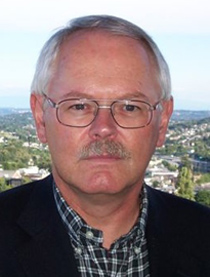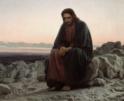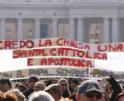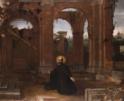
Spirituality
Who was Rachel Held Evans? She defies simple definition, beyond saying that she was a young religious writer who wrote with a depth and balance beyond her years . . .

Rolheiser
"No community should botch its deaths." Mircea Eliade wrote those words and they're a warning: If we do not properly celebrate the life of someone who has left us, we do an injustice to that person and cheat ourselves of some of the gifts that he or she left behind.
With this in mind, I want to underscore the loss that we, the Christian community, irrespective of denomination, suffered with the death of Rachel Held Evans who died, at age 37, on May the 4th.
Who was Rachel Held Evans? She defies simple definition, beyond saying that she was a young religious writer who wrote with a depth and balance beyond her years as she chronicled her struggles to move from the deep, sincere, childlike faith she was raised in to eventually arrive at a questioning, but more mature, faith that was now willing to face all the hard questions within faith, religion, and church. And in this journey, she was beset with opposition from within (it's hard to courageously scrutinize your own roots) and from without (churches generally don't like being pressed by hard questions, especially from their own young). But the journey she made and articulates (with rare honesty and wit) is a journey that, in some way, all of us, young and old, have to make to come to a faith that can stand up to the hard questions coming from our world and the even harder ones coming from inside of us.
Carl Rogers once famously said: "What is most personal is also most universal." The journey Rachel Held Evans traces out from her own life is, I submit, by and large, the universal one today, that is, the naïve faith of our childhood inevitably meets challenges, questions, and ridicule in adulthood and that demands of us a response beyond the Sunday school and catechism of our youth. Not least among these questions and challenges is the one of church, of justifying belonging to one, given the propensity within our churches for infidelity, narrowness, judgmental attitudes, reluctance to face doubt, and the perennial temptation to wed the Gospels to their favored political ideology.
Rachel Held Evans struggled to make the journey from the naiveté of childhood, with all its innocence and magic, where one can believe in Santa and the Easter Bunny and take biblical stories literally, to what Paul Ricouer calls "second naiveté", where, through a painful interplay between doubt and faith, one has been able to work through the conscriptive sophistication that comes with adulthood so as to reground the innocence and magic (and faith) of childhood on a foundation that has already taken seriously the doubt and disillusionment that beset us in the face of adulthood.
The Irish philosopher, John Moriarty, whose religious story plays out along similar lines as Rachel's, coins an interesting expression to describe what happened to him. At one point in his religious journey, he tells us, "I fell out of my story". The Roman Catholicism he had been raised into was no longer the story out of which he could live his life. Eventually, after sorting through some hard questions and realizing that the faith of his youth was, in the end, his "mother tongue", he found his way back into his religious story.
Rachel Held Evans' story is similar. Raised in the Southern USA Bible Belt inside a robust Evangelical Christianity she, too, as she faced the questions of her own adulthood, fell out of her story and, like Moriarty, eventually found her way back into it, at least in essence.
In the end, she found her way back to a mature faith (which now can handle doubt), found a church (Episcopalian) within which she could worship, and, in effect, found her way back to her mother tongue. The church and faith of her youth, she writes, remain in her life like an old boyfriend. ... Where, while not together anymore in the old way, you still end up checking Facebook each day to see what's happening in his life.
Many Roman Catholics and mainline Protestants, I suspect, may not be very familiar with Rachel Held Evans or have read her works. She wrote four best-selling books, "Inspired," "Searching for Sunday," "A Year of Biblical Womanhood," and "Faith Unraveled." The purpose of this column is therefore pretty straightforward: Read her! Even more important, plant her books in the path of anyone struggling with faith or church: loved ones, children, spouses, family members, friends, colleagues.
Rachel Held Evans arose out of an Evangelical ecclesial tradition and out of the particular approach to Christian discipleship that generally flows from there. She and I come from very different ecclesial worlds. But, as Roman Catholic priest, solidly committed to the tradition I was raised in, and as a theologian and spiritual writer for more than 40 years, reading this young woman, I haven't found a single line with which to disagree. She's trusted food for the soul.
She's also a special person that we lost far too soon.
- Oblate Father Ron Rolheiser, theologian, teacher, and award-winning author, is President of the Oblate School of Theology in San Antonio, TX. He can be contacted through his website www.ronrolheiser.com.
Now on Facebook www.facebook.com/ronrolheiser
Recent articles in the Spirituality section
-
Masters week foreknowledgeMichael Pakaluk
-
Why is Lent 40 days?Michael Pakaluk
-
The eloquent ambiguity of 'I believe'Bishop Robert Barron
-
You don't get what you pay forMichael Pakaluk
-
The witness of a consecrated lifeBishop Robert Barron























